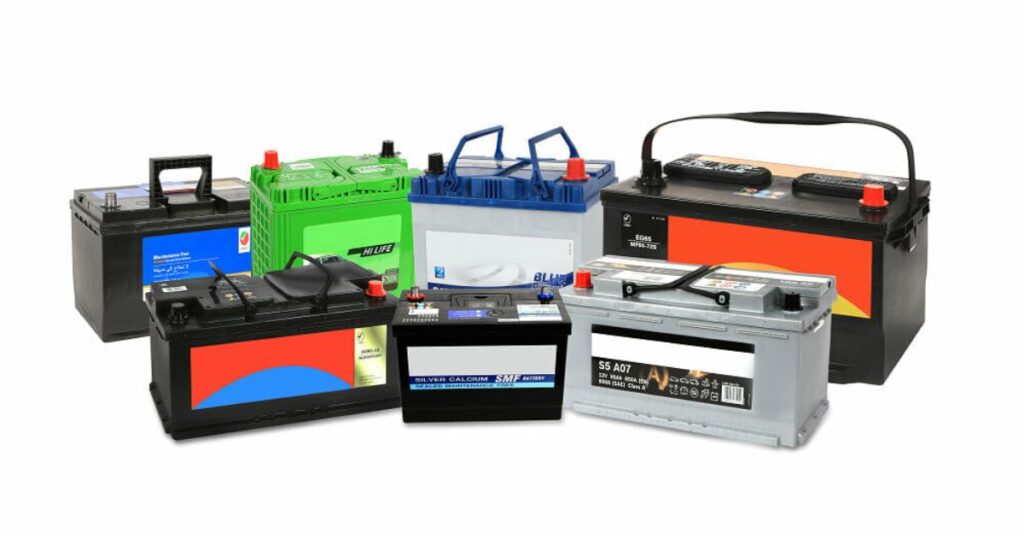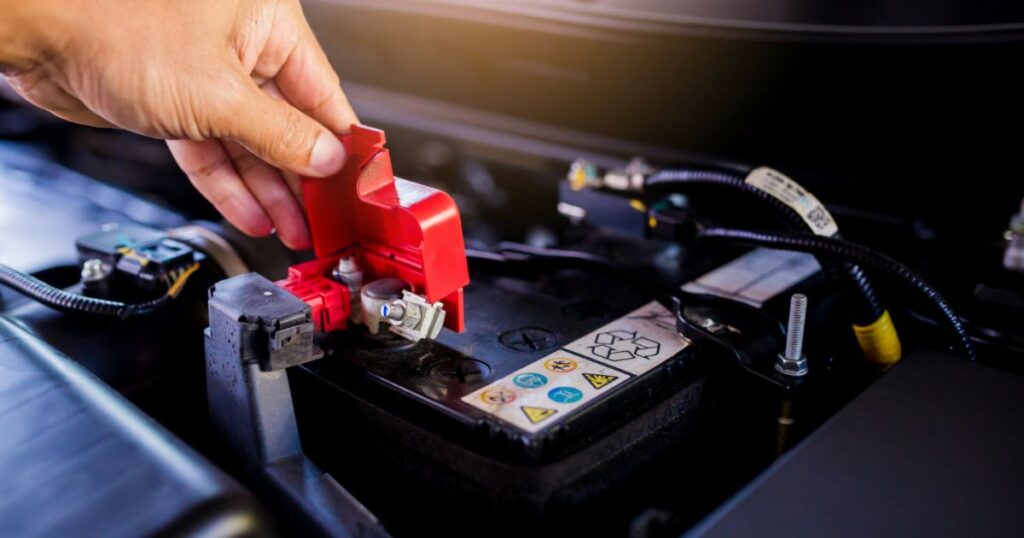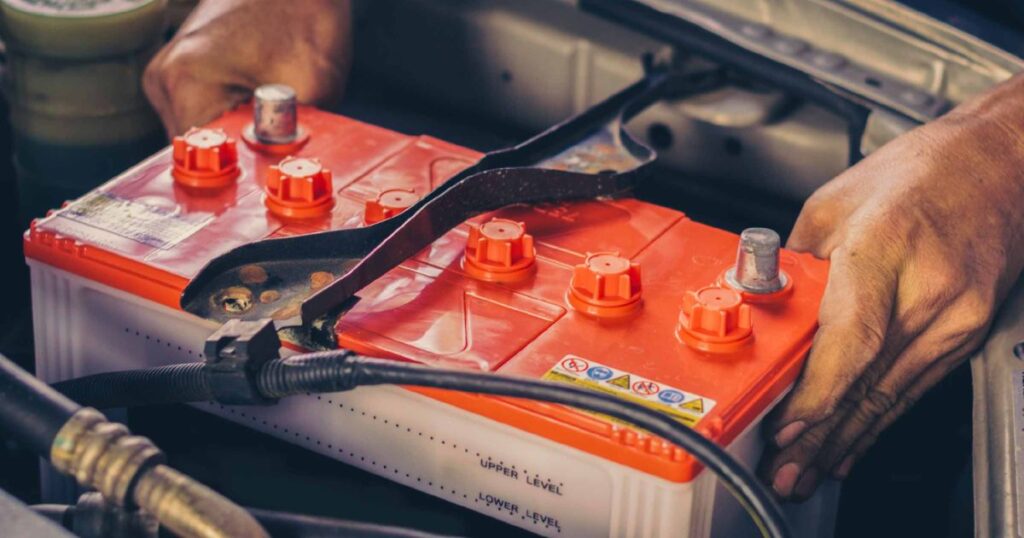Introduction
Did you know that over 600,000 car batteries are replaced daily in the United States alone? That’s a staggering number, highlighting just how crucial it is for every car owner to understand battery maintenance and longevity. Whether you’re dealing with an older battery or a brand new one, knowing how long do car batteries last and what factors affect their lifespan can save you from costly breakdowns and unexpected repairs.
This comprehensive guide will dive deep into car batteries, exploring their average lifespans. These variables impact their durability and proven strategies to help you extend your car battery life. Get ready to unlock the secrets to enjoying a reliable, long-lasting battery that keeps your vehicle running smoothly for years.
Quality of Car Batteries
Not all car batteries are created equal, and investing in a high-quality battery from a reputable brand can significantly affect its longevity. Premium batteries are engineered with advanced technologies and superior materials, ensuring better performance, longer life cycles, and improved resistance to extreme temperatures and vibrations.
While a cheaper battery may seem appealing initially, it’s often a false economy. Low-quality batteries are more prone to premature failure, requiring frequent replacements and potentially leaving you stranded with a dead battery. Reputable brands like Optima, Odyssey, and Interstate offer top-notch batteries designed to withstand the rigors of daily driving and harsh environmental conditions.
Types of Car Batteries

Regarding car battery life expectancy, the type of battery plays a crucial role. While traditional lead-acid batteries are still the most common, several other options are available, each with its advantages and disadvantages:
Lead-Acid Batteries
These are the most affordable and widely used batteries in the automotive industry. They are reliable and can last anywhere from 3 to 5 years with proper maintenance.
Absorbed Glass Mat (AGM) Batteries
AGM batteries are spill-proof and more resistant to vibrations, making them a popular choice for luxury vehicles and high-performance cars. They typically last between 4 and 7 years.
Lithium-Ion Batteries
These advanced batteries are lightweight, compact, and can hold a charge for longer. While more expensive, they boast a lifespan of up to 10 years or more, making them an excellent option for hybrid and electric vehicles.
Gel Cell Batteries
Like AGM batteries, gel cell batteries are spill-proof and resistant to vibrations. They have a slightly shorter lifespan than AGM batteries but are a good choice for off-road vehicles or boats.
When selecting a battery for your car, consider factors such as driving conditions, climate, and battery performance requirements to choose the best option.
How Do Car Batteries Work?
To understand how long do car batteries last, it’s essential to grasp how they function. Car batteries are electrochemical devices that convert chemical energy into electrical energy through chemical reactions.
In a traditional lead-acid battery, the primary components are:
- Lead Plates: Positive and negative lead plates are submerged in electrolyte.
- Electrolyte Solution: A mixture of sulfuric acid and water facilitates the chemical reactions that produce electrical energy.
- Battery Case: A sturdy plastic or metal casing that houses the internal components and protects them from the elements.
When you turn your car’s ignition, the battery sends a powerful burst of electrical energy to the starter motor, allowing the engine to crank and start. As the engine runs, the alternator generates electricity and recharges the battery, ensuring it stays topped up for the next startup.
This cycle of discharging and recharging keeps your car’s electrical systems powered and the battery functioning. However, over time, the chemical reactions inside the battery can degrade its components, leading to a decreased capacity and, eventually, battery failure.
Car Battery Care
Proper battery care ensures your car battery lasts as long as possible. Neglecting your battery’s maintenance can lead to premature failure, leaving you stranded or facing costly replacements.
Here are some crucial steps to take for optimal battery health:
- Regular Inspections: Check your battery terminals for corrosion, clean them if necessary, and ensure the battery is securely mounted.
- Charge Monitoring: Use a voltmeter to monitor your battery’s charge level and ensure it stays within the recommended range.
- Load Testing: Have your battery professionally load-tested periodically to assess its overall condition and remaining capacity.
- Proper Storage: If your car will be unused for an extended period, consider using a battery maintainer or disconnecting the battery to prevent excessive discharge.
By taking these simple steps, you can help prolong your battery’s lifespan and avoid unexpected breakdowns.
What Is the Average Lifespan of a Car Battery?
While there’s no one-size-fits-all answer to the question “how long does a car battery last,” most manufacturers and experts agree that the typical lifespan of a car battery falls within the 3 to 5-year range. However, several factors can influence this average and cause batteries to last either shorter or longer periods.
Many new batteries come with a warranty ranging from 2 to 4 years, providing some peace of mind in case of premature failure. It’s essential to remember that these warranties are based on average use and ideal conditions; factors like extreme temperatures, excessive vibration, and poor maintenance can significantly shorten a battery’s life.
Ultimately, the lifespan of your car battery will depend on a combination of factors, including the quality of the battery, your driving habits, and the environment in which your vehicle operates.
What Shortens Car Battery Life?
While most car batteries are designed to last several years, various factors can accelerate their degradation and shorten their lifespan. Understanding these factors can help you take preventive measures to maximize your battery’s longevity.
1. Time
Even if your car battery is rarely used, time alone can cause it to degrade. As batteries age, their internal components can rust, and their charge capacity diminishes. This is why even batteries in vehicles that are driven infrequently will eventually need to be replaced.
2. Usage
How you use your car and its battery can significantly impact its lifespan. Frequent short trips, where the alternator doesn’t have enough time to recharge the battery, can strain the battery and lead to premature failure. Similarly, leaving accessories like lights, radio, or air conditioning running while the engine is off can drain the battery faster.
3. Temperature
Extreme hot and cold temperatures can harm your car battery’s health. High temperatures can cause the battery fluid to evaporate, damaging internal components, while freezing temperatures can reduce the battery’s ability to hold a charge.
4. Vibration
Excessive vibration, often caused by rough roads or a loose battery mount, can compromise the integrity of the battery’s internal structure. Over time, this can lead to shorts, leaks, and accelerated degradation.
Understanding these factors and taking appropriate measures to mitigate their effects can help extend your car battery’s lifespan and avoid costly replacements.
How Do I Know When My Car Needs a New Battery?
Even with proper maintenance, all car batteries will eventually end their lifespan and must be replaced. Knowing the signs of a failing battery can help you avoid being stranded and plan for a timely replacement. Here are some common indicators that your car battery is nearing the end of its life:
- Slow Engine Crank: If your car’s engine takes longer than usual to crank and start, it could be a sign of a weak battery unable to provide enough power to the starter motor.
- Electrical Issues: Dimming headlights, flickering dashboard lights, or intermittent electrical problems can all point to a battery no longer holding a sufficient charge.
- Battery Case Swelling or Cracking: Physical damage or deformation of the battery case can indicate internal issues and potential leaks, which can be hazardous.
- Battery Age: Most batteries must be replaced every 3 to 5 years, even if they aren’t exhibiting any outward signs of failure.
- Corrosion on Battery Terminals: Excessive corrosion buildup on the battery terminals can prevent proper electrical connection and impede the battery’s ability to charge and discharge effectively.
If you notice any of these signs, a professional must test your battery to determine if it needs to be replaced. Ignoring these warning signs can lead to costly breakdowns or damage to your vehicle’s electrical system.
What Are Some Ways to Extend Car Battery Life?
1. Limit Short Drives
Short drives are one of the biggest enemies of car battery life. When you start your car, the battery provides the initial burst of power to crank the engine. However, the alternator recharges the battery while the engine is running.
If you frequently make short trips where the engine doesn’t have enough time to recharge the battery fully, it can lead to a consistently undercharged state. Over time, this can cause sulfation buildup on the battery plates, reducing capacity and shortening lifespan.
To combat this, limit short trips whenever possible. If you must make frequent short drives, consider investing in a battery maintainer (more on that later) or replacing your battery more frequently to account for the added strain.
2. Control the Temperature
Extreme hot and cold temperatures can wreak havoc on your car battery’s performance and longevity. High heat can cause the battery fluid to evaporate, leading to internal damage and decreased capacity. On the other hand, freezing temperatures can reduce the chemical reactions inside the battery, making it harder to start your car and potentially causing permanent damage.
To mitigate these effects, keep your car in a garage or shaded area when possible, especially during the hottest and coldest months. If you live in an area with extreme temperatures, consider investing in a battery designed for those conditions or replacing your battery more frequently.
3. Clean Off Corrosion
Corrosion buildup on the battery terminals can prevent proper electrical connection, leading to charging issues and potentially shortening your battery’s life. A chemical reaction between the battery acid and the metal terminals causes this white or bluish crusty substance.
To clean off corrosion, follow these steps:
- Disconnect the battery cables, starting with the negative (-) cable.
- Use a wire brush, baking soda, and water solution to scrub the corrosion from the terminals and cable connectors.
- Rinse the area thoroughly with water and dry it completely.
- Apply a thin coating of dielectric grease or battery terminal protector to the terminals to prevent future corrosion.
- Reconnect the cables, starting with the positive (+) cable.
Regular cleaning and maintenance can prevent corrosion from becoming a problem and extend your battery’s lifespan.
4. Use a Battery Maintainer
If your car spends extended periods without being driven, the battery can slowly discharge itself, leading to a dead battery and potentially damaging the internal components. A battery maintainer, also known as a trickle charger, can help prevent this by providing a slow, continuous charge to your battery while it’s not in use.
These devices are designed to automatically monitor and maintain your battery’s charge level, preventing overcharging or undercharging. They’re beneficial for cars stored for long periods, such as seasonal or classic cars.
Using a battery maintainer can help ensure your battery stays in optimal condition, even when your car isn’t being driven, extending its lifespan and preventing costly replacements.
Signs of a Dying Battery
Even with proper maintenance, all car batteries will eventually end their lifespan and must be replaced. Here are some common signs that your battery is nearing its end and may need to be replaced soon:
- Slow Engine Crank: If your engine takes longer than usual to crank and start, it could be a sign of a weak battery that cannot provide enough power to the starter motor.
- Dimming Headlights: Dimming headlights or flickering dashboard lights can indicate that your battery no longer holds a sufficient charge.
- Battery Case Swelling or Cracking: Physical damage or deformation of the battery case can signal internal issues and potential leaks, which can be hazardous.
- Battery Age: Most batteries must be replaced every 3 to 5 years, even if they aren’t exhibiting any outward signs of failure.
- Electrical Issues: Intermittent electrical problems, such as accessories not working or warning lights flickering, can be a sign of a failing battery.
- Rotten Egg Smell: If you notice a sulfuric or rotten egg smell from your battery, it could indicate a leak or internal damage.
- Corrosion on Battery Terminals: Excessive corrosion buildup on the battery terminals can prevent proper electrical connection and impede the battery’s ability to charge and discharge effectively.
If you notice any of these signs, a professional must test your battery to determine if it needs to be replaced. Ignoring these warning signs can lead to costly breakdowns or damage to your vehicle’s electrical system.
Can My Car Battery Last 10 Years?

While most car batteries have a lifespan of 3 to 5 years, some batteries can last up to 10 years or even longer under ideal conditions. However, achieving this remarkable longevity requires a combination of factors, including:
High-Quality Battery
Investing in a premium battery from a reputable brand designed for your specific vehicle and driving conditions can significantly increase its potential lifespan.
Optimal Temperature Control
Maintaining consistent, moderate temperatures for your battery can help prevent premature degradation. Parking in a garage or shaded area can help achieve this.
Minimal Vibration
Excessive vibration can damage the internal components of a battery over time. Ensuring your battery is securely mounted and avoiding rough terrain can help reduce this strain.
Proper Maintenance
Regular cleaning, charge monitoring, and load testing can help identify and address potential issues before they lead to premature battery failure.
Limited Short Trips
Frequent short drives that don’t allow the alternator to recharge the battery fully can shorten its lifespan. Limiting these short trips or using a battery maintainer can help counteract this effect.
While a 10-year lifespan is certainly possible, it’s important to remember that it’s not the norm. Most car owners must replace batteries every few years, even with diligent maintenance. However, by following best practices and attending to your battery’s needs, you can maximize its longevity and achieve that coveted decade-long lifespan.
Read More Posts
What Is The Fastest Car In Grand Theft Auto 5?
Does Costco Install Car Batteries?
FAQs
How do I know when my car needs a new battery?
Look for signs like slow engine crank, dim headlights, and a battery warning light on your dashboard.
What is the average lifespan of a car battery?
The average lifespan of a car battery is around 3-5 years.
Can a car battery last 10 years?
While possible, a car battery lasting 10 years is uncommon and typically requires ideal conditions and minimal usage.
What shortens car battery life?
Factors like extreme temperatures, frequent short trips, and lack of maintenance can shorten car battery life.
Conclusion
Understanding how long do car batteries last and the factors that influence their lifespan is crucial for every car owner. By investing in a high-quality battery, practicing proper maintenance techniques, and being mindful of environmental and usage factors, you can significantly extend the life of your car’s battery and avoid costly replacements or breakdowns.
Remember, the average car battery lifespan falls within the 3 to 5-year range, but with diligent care and attention, some batteries can last up to 10 years or more. By monitoring your battery’s condition, addressing any issues promptly, and following the guidelines outlined in this guide, you can ensure your car’s battery remains a reliable and long-lasting power source.
So, don’t wait until your battery fails unexpectedly – take proactive steps to maximize its longevity and enjoy a smooth, worry-free driving experience for years.







